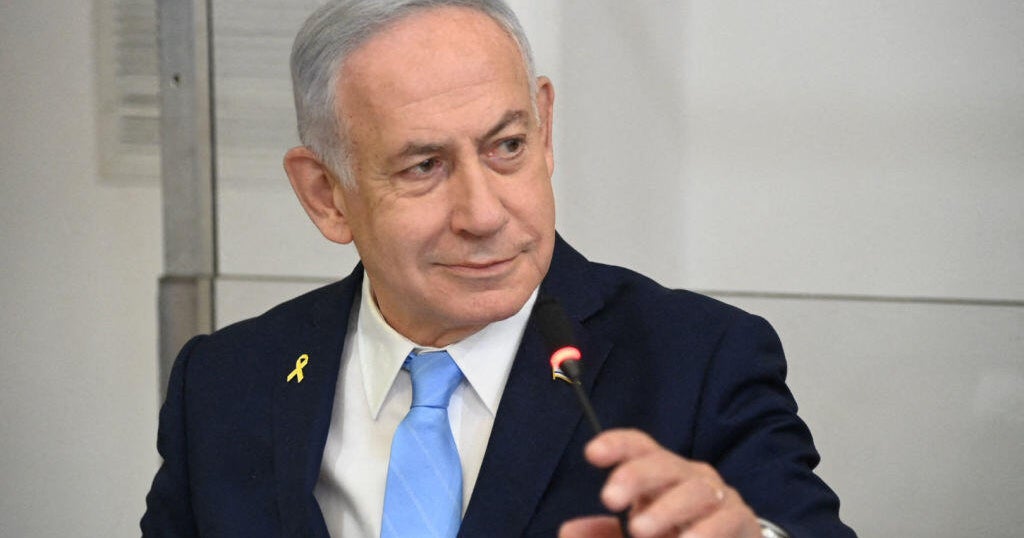Israel's parliament approves new government, ending Netanyahu's 12-year rule
Jerusalem — Israel's parliament has narrowly voted in favor of a new coalition government, ending Prime Minister Benjamin Netanyahu's historic 12-year rule.
Naftali Bennett, a former ally of Netanyahu turned bitter rival, has become prime minister, presiding over a diverse and fragile coalition comprised of eight parties with deep ideological differences. Netanyahu remains head of the Likud party and will hold the post of opposition leader.
Netanyahu sat silently during the vote. After it was approved, he stood up to leave the chamber, before turning around and shaking Bennett's hand. A dejected Netanyahu, wearing a black medical mask, then sat down in the opposition leader's chair.
President Biden welcomed the new government, saying he "look[s] forward to working with Prime Minister Bennett to strengthen all aspects of the close and enduring relationship between our two nations."
"Israel has no better friend than the United States. The bond that unites our people is evidence of our shared values and decades of close cooperation and as we continue to strengthen our partnership, the United States remains unwavering in its support for Israel's security," Mr. Biden said in a statement. "My administration is fully committed to working with the new Israeli government to advance security, stability, and peace for Israelis, Palestinians, and people throughout the broader region."
Sunday's vote, passed by a 60-59 margin, ended a two-year cycle of political paralysis in which the country held four elections.
The eight parties in the coalition, including a small Arab faction that is making history by sitting in the ruling coalition, are united in their opposition to Netanyahu and new elections but agree on little else. They are likely to pursue a modest agenda that seeks to reduce tensions with the Palestinians and maintain good relations with the U.S. without launching any major initiatives.
Netanyahu, who is on trial for corruption, is expected to vigorously oppose the new government. If just one faction bolts, it could lose its majority and would be at risk of collapse, giving him an opening to return to power.
The country's deep divisions were on vivid display as Bennett addressed parliament ahead of the vote. He was repeatedly interrupted and loudly heckled by supporters of Netanyahu, several of whom were escorted out of the chamber.
Bennett's speech mostly dwelled on domestic issues, but he expressed opposition to U.S. efforts to revive Iran's nuclear deal with world powers.
"Israel will not allow Iran to arm itself with nuclear weapons," Bennett said, vowing to maintain Netanyahu's confrontational policy. "Israel will not be a party to the agreement and will continue to preserve full freedom of action."
Bennett nevertheless thanked Mr. Biden and the U.S. for its decades of support for Israel.
Netanyahu, speaking after him, vowed to return to power. He predicted the incoming government would be weak on Iran and give in to U.S. demands to make concessions to the Palestinians.
"If it is destined for us to be in the opposition, we will do it with our backs straight until we topple this dangerous government and return to lead the country in our way," he said.
The new government is promising a return to normalcy after a tumultuous two years that saw four elections, an 11-day Gaza war last month and a coronavirus outbreak that devastated the economy before it was largely brought under control by a successful vaccination campaign.
The driving force behind the coalition is Yair Lapid, a political centrist who will become prime minister in two years, if the government lasts that long.
He called off a planned speech to parliament, instead saying he was ashamed that his 86-year-old mother had to witness the raucous behavior of his opponents. In a brief speech, he asked for "forgiveness from my mother."
"I wanted her to be proud of the democratic process in Israel. Instead she, along with every citizen of Israel, is ashamed of you and remembers clearly why it's time to replace you," he said.




